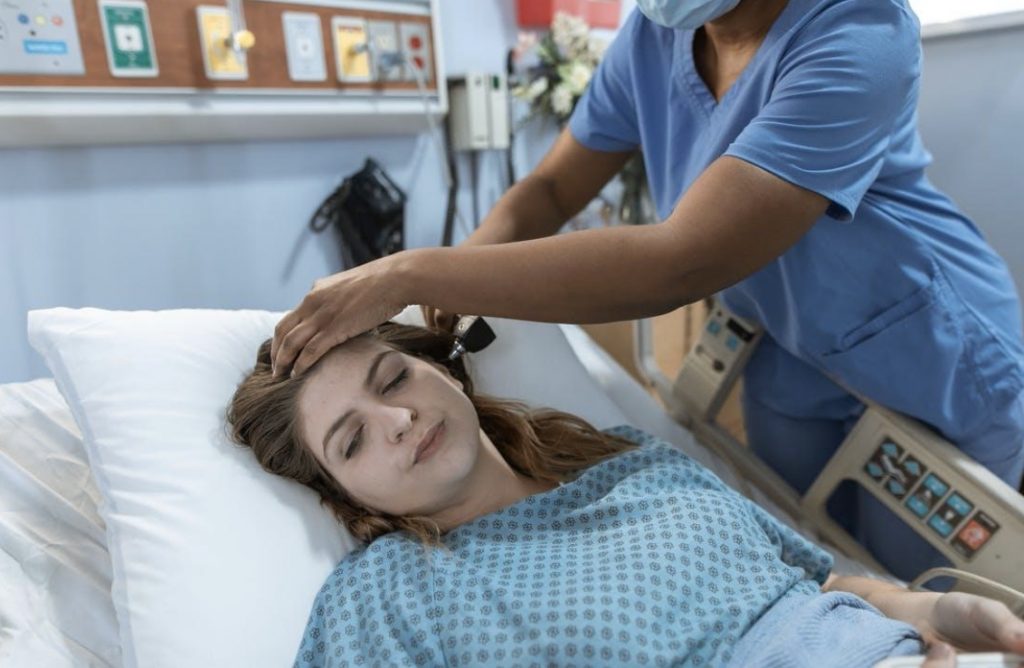Security and safety aren’t just a matter of coincidence: they result from public investment and collective consensus. Our children deserve more – after all, they are the most valuable part of any society. They deserve a life free from fear and violence. To make this happen, we must become unstoppable in our efforts to attain prosperity, justice, and peace for all communities and countries. We must discover and fight against the roots of violence – Nelson Mandela.
Unfortunately, we haven’t been following Mandela’s guidelines. Today, abuse can occur anytime and has many forms. Scenarios may involve the abuse of a child by a caregiver or a parent or spousal abuse. Other than physical aspects, domestic violence can include financial exploitation, sexual assault, and emotional battering. Many of these can lead to health problems for the victims.
Domestic violence nurses, commonly referred to as trained nurse examiners, treat patients with such traumatic backgrounds. They deal with the victim of emotional or physical abuse within a domestic setting, such as in cohabitation or marriage. This relatively new and growing specialty field is considered an offshoot of medical nursing. It is the perfect choice for anyone who has a keen interest in both medicine and the criminal justice system.
These nurses are in charge of keeping accurate patient records that may or may not be used as evidence in court. Moreover, domestic violence nurses are compassionate, understanding, and supportive of providing the most considerate care to devastated patients.
So what are the traditional roles of a domestic violence nurse in treating traumatized victims? Read below to find out.
1. Physical care
One of the best qualities of a good nurse is their ability to understand the pain. It’s pretty easy to determine why abuse victims demand respect – because they are no longer in their senses.
In the emergency room, this may involve applying a dressing or cleaning wounds. If the injuries are terrible, the patient may require nursing care and surgery during the recovery period. The nurse might deliver medications for pain or assist the patient in walking with crutches. Additionally, victims of abuse may need some guidance on self-management if their injuries may take months to reconcile, such as broken bones.
2. Ethics
Nursing ethics take rise from the rule of non-maleficence, or not causing any harm. Under this rule, domestic nurses have to care for people with compassion and respect each individual’s dignity and inherent worth. Domestic violence victims face exploitation in sexual, emotional, or physical ways. Nurses tend to extend their care and services no matter how ugly or brutal the situation may be.
3. Emotional care
Besides being a caretaker, a domestic violence nurse has to provide emotional support by expressing themselves. Children may speak up after receiving a stuffed toy to disclose all the terrible things that have happened to them. On the other hand, an adult may feel reluctant to share their side of the story. Nurses offer a chance to talk about feelings and suggest an experienced counselor dealing with abuse victims.
There’s a good chance that the nurse can identify suicidal intent or depression symptoms in an abusive victim.
4. Law enforcement
Most domestic violence cases require the entry of law enforcement. Physical battering, financial exploitation, and sexual assault are all issues that may require a court hearing. In such matters, the domestic violence nurse has to be the healthcare professional who must note these activities related to the patient. In rape cases, the examining nurse may be a part of the Sexual Abuse Response Team, SART, who has to preserve and collect evidence. In numerous states, nurses are considered authorized reporters for child abuse, elder abuse, and violence.
Victim advocate plays a significant role in the legal system. Their potential to support survivors of abusive acts allows them to regain the ability to get back on their feet. While exploring how to become a victim advocate and the JD, people come across this profession’s draining and stressful aspects. One may be responsible for taking the victim and preparing him or her for the court hearing.
5. Treatment for all
No reliable set of mental health penalties got identified for ill-treated children. However, they may have behavior disorders, mental instability, recognizably unique from their peers. The list also includes any physical injury that happened to occur during the dark period of their life.
Some children show symptoms immediately, while others may take time, and some show nothing at all. Dissimilar factors may account for this disparity in maltreatment’s mental and emotional health impact, including the presence and amount of parental support, the level of stressful factors in the child’s life, and some cognitive-attributable perspectives. Domestic nurses are valued because they investigate the variability in children’s responses to their experiences to identify which mental health program might fit them better.
Abused children typically get referred to counseling or psychotherapy for various problems. The issues include delinquency, undisciplined behavior, isolation, phobias, anxiety, or depression.
Conclusion
The absence of respect for human rights and human dignity is a core problem that ignites domestic violence. Healthcare professionals are pretty much the only individuals with whom tormented victims share their experiences and expect them to listen and empathize without being judgemental.
Without a doubt, domestic violence nurses do everything in their will to show compassion and enlightenment towards abuse victims. They take care of them and make sure no words go unheard or unappreciated.

